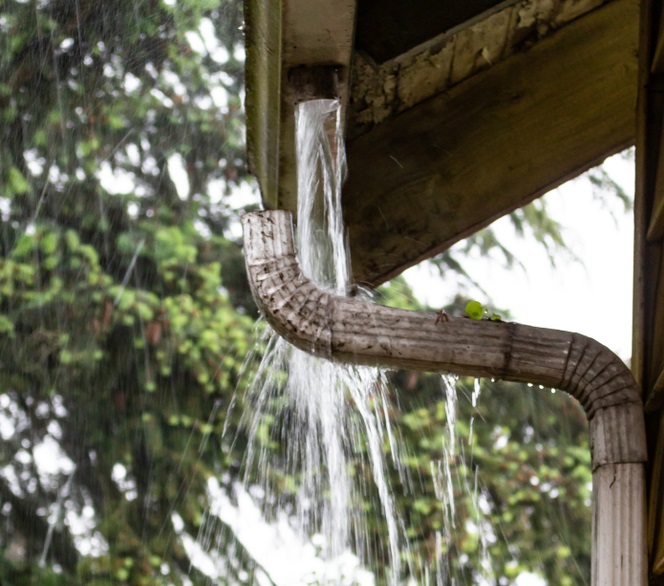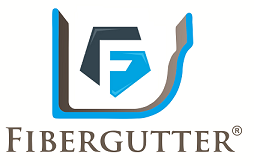
Gutter Comparison: Aluminum, Copper, Fiberglass, Wood, Vinyl, and Steel – Why Fibergutter Reigns Supreme
When it comes to selecting the perfect gutter system for your home, the choices can be overwhelming. Aluminum, copper, fiberglass, wood, vinyl, and steel each offer different pros and cons. To help you make an informed decision, we’ve broken down each material and explained why Fibergutter is the #1 choice for homeowners, especially those in coastal regions.
1. Aluminum Gutters
Aluminum gutters are a popular choice due to their affordability and rust resistance. They’re lightweight, easy to install, and generally durable in standard environments. However, aluminum has a significant weakness: it doesn’t perform well in coastal areas. The salty air from the ocean can cause aluminum to corrode more quickly than in inland regions. Over time, exposure to salt weakens the material, shortening its lifespan considerably in oceanfront homes.
In addition, aluminum is prone to denting and can fade or peel over time, requiring regular maintenance and eventual replacement.
Pros:
- Affordable
- Lightweight and easy to install
- Rust-resistant (but not salt-resistant)
Cons:
- Corrodes quickly in salty, coastal environments
- Prone to denting
- Requires regular upkeep as paint fades and peels
2. Copper Gutters
Copper gutters offer unmatched durability and a striking appearance. They develop a lovely patina over time, making them a stylish and long-lasting option. Copper is also resistant to rust and salt, making it ideal for coastal homes. However, the downside is cost—copper is one of the most expensive gutter materials available and requires expert installation.
Pros:
- Long-lasting and durable
- Ideal for coastal areas (resistant to salt corrosion)
- Adds aesthetic value with a natural patina
Cons:
- Extremely expensive
- Requires professional installation
- Needs maintenance to preserve its appearance
3. Fiberglass Gutters (Fibergutter)
Fibergutter combines the best features of all other materials, making it the superior choice for durability, low maintenance, and aesthetics—especially in coastal environments. Unlike aluminum, fiberglass is completely resistant to salt corrosion and will not rust, making it an ideal choice for oceanfront homes. It won’t dent, warp, or crack under extreme weather conditions, and it’s much more lightweight than copper or steel.
Fiberglass gutters offer the sleek look of traditional wood gutters, with none of the high-maintenance drawbacks. Fibergutter provides a cost-effective, long-lasting solution that is both environmentally friendly and built to handle whatever nature throws at it.
Pros:
- Extremely durable and long-lasting
- Completely resistant to salt and rust
- Low maintenance
- Aesthetic appeal similar to wood without the upkeep
- Lightweight and environmentally friendly
Cons:
- Slightly higher initial cost than aluminum (but worth it for longevity)
4. Wood Gutters
Wood gutters provide a traditional, classic look, especially for historic homes. While they offer great aesthetic appeal, wood gutters are extremely high-maintenance. They require frequent sealing, painting, and cleaning to avoid rotting or cracking. In coastal areas, humidity and rain can quickly degrade wood gutters, shortening their lifespan significantly.
Pros:
- Timeless aesthetic, particularly for older homes
Cons:
- High maintenance
- Prone to rot and cracking, especially in coastal areas
- Shorter lifespan
5. Vinyl Gutters
Vinyl gutters are the most affordable option on the market. They are easy to install and will never rust. However, vinyl is not built to handle extreme temperatures or heavy loads, making it prone to cracking and sagging, especially in harsh climates. For homes in coastal or cold areas, vinyl’s durability falls short.
Pros:
- Very affordable
- Won’t rust
Cons:
- Prone to cracking and sagging
- Not suitable for extreme temperatures or harsh climates
- Limited lifespan
6. Steel Gutters
Steel gutters are strong and durable, able to withstand heavy loads and impact. Galvanized steel offers rust resistance, but like aluminum, steel doesn’t fare well in coastal environments. Salt exposure can cause it to rust over time, particularly in humid, oceanfront regions. Steel is also heavier and more challenging to install than lighter materials like aluminum or vinyl.
Pros:
- Strong and impact-resistant
- Galvanized steel offers rust resistance
Cons:
- Prone to rust over time, especially in salty environments
- Heavy and difficult to install
- Requires regular maintenance
Why Fibergutter is the #1 Choice
Fibergutter outshines all other materials, particularly for homes in coastal regions where salt and moisture are a constant concern. While aluminum and steel gutters may be affordable and widely used, they corrode quickly in salty air. Copper is resistant to corrosion, but its high price point makes it prohibitive for many homeowners. Wood and vinyl may work in certain environments but require high maintenance or are prone to deterioration.
Fibergutter offers:
- Unmatched Durability: Resistant to salt, rust, and impact, making it ideal for oceanfront homes.
- Low Maintenance: No need to worry about frequent repairs, repainting, or salt corrosion.
- Timeless Aesthetic: Fibergutter mimics the beauty of traditional wood gutters without the hassle.
- Long-Term Value: While the initial cost may be slightly higher than aluminum or vinyl, the long-term savings in maintenance and replacement make it a wise investment.
- Environmental Benefits: With its long lifespan, Fibergutter reduces the need for replacement and waste, making it an eco-friendly choice.
For a gutter system that can handle the harshest weather conditions while adding elegance to your home, Fibergutter is the ultimate solution. Whether you’re in a coastal region or looking for a long-lasting, low-maintenance option, Fibergutter is the smart choice for homeowners who want the best.
Upgrade to Fibergutter today! Contact us for a quote and discover how Fibergutter can protect your home for years to come.
